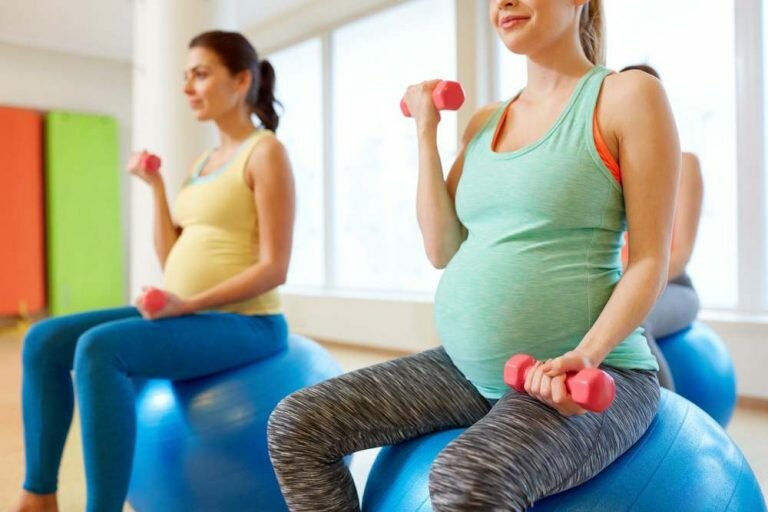Exercise During Pregnancy
If you’re pregnant and thinking “well there goes my exercise regime, time for eating for two and sitting on the lounge”, you would be wrong. By all means nothing is stopping you from doing that but I guarantee you will not be thanking yourself later. You are also missing out on some great benefits that exercise has for you, not only during pregnancy but also post-partum.
A study by Gaston in 2013 showed that only 23% of women met physical activity guidelines during pregnancy and 95% of women decrease their current training frequency or intensity. The body goes through many changes throughout pregnancy including hormonal, cardiovascular, respiratory, metabolic and musculoskeletal. In saying that, no two pregnancies are the same, so each female will experience and be affected by these changes differently.

There are a lot of myths when it comes to exercise and pregnancy.
There is the very ‘old-fashioned’ view of you must wrap yourself in bubble wrap and not do anything that can harm the baby. Currently there is no research proving that exercise will harm the baby or increase chance of miscarriage through your pregnancy.
You do not need to strictly monitor heart rates. The old view was that a higher heart rate will place stress on the foetus. Research now shows that the best indicator for exercise is to go off an RPE (rate of perceived exertion) scale or to use the talk test. The talk test being you should be able to talk but not be able to sing.
You are unable to do any high intensity training. If you weren’t doing high intensity prior to falling pregnant, now is not the best time to be starting. You can be starting 1. some exercise, however if you haven’t exercised before it is best to start by consulting with an Exercise Physiologist. You are able to keep doing what exercise you were doing prior to falling pregnant so long as it is comfortable (using RPE and talk test) and modified depending on the trimesters.
There can be some cases when exercise isn’t going to be recommended. If you are unsure if you fall into this category or have any further questions about this, this can be discussed with your GP, women’s health physio or your Exercise Physiologist. There are some precautions on the choice of exercise you choose with the risk they involve, for instance, some contact sports, horse-riding or gymnastics where there is a higher risk of direct contact to the stomach or an increased risk of falls.

There are some things you or your Exercise physiologist can monitor or adjust to make sure you are exercising safely and comfortably in different trimesters. These include:
- Modifying your environment for temperature control
- Fluid consumption to avoid dehydration
- Certain Abdominal work
- Heavy lifting with the Valsalva manoeuvre
- Wide stance or unilateral work
- Supine exercises
*You should stop a session if there are certain changes in the body including bleeding, painful contractions, leakage, chest pains, headaches or dizziness
If you’re looking for a reason to start or keep exercising during pregnancy there are many benefits including:
- Better obstetrical outcomes with reduced chance of caesareans and the use of instruments in birth
- Decreases risk of gestational diabetes
- May help improve mental health
- May help with musculoskeletal pain
- Exercise prior to conception decreases risk of pre-eclampsia
- Decrease chance of excessive weight gain
It is important to regularly monitor blood pressure throughout your pregnancy and continue to check in and attend your scheduled doctors’ appointments. Your Exercise Physiologist can work with your medical team to make sure you are doing the safest and most effective exercise during your pregnancy and post-partum. The benefits of exercise definitely outweigh the negatives of not exercising, so if you are hesitant or you find that there is too much conflicting information it is best to discuss it with an Exercise Professional.
